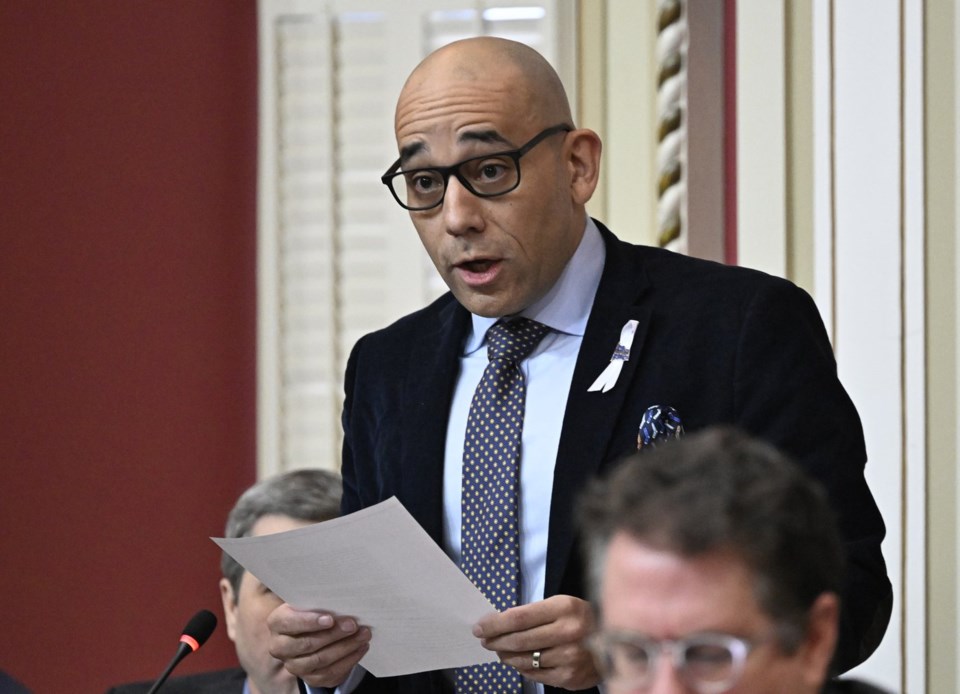QUÉBEC — Quebec is moving to lower interprovincial trade barriers, as part of a push by provinces and the federal government to increase domestic trade in response to U.S. President Donald Trump's tariffs.
Minister for the Economy Christopher Skeete tabled a bill on Friday to remove all restrictions on the use and sale of products from other provinces and to facilitate labour mobility – with some exceptions.
Skeete told reporters in Quebec City that the bill sends a message the province is ready to drop barriers and stimulate trade between regions.
"If you look at what Quebec is doing today, we're leading the charge," he said. "We have one of the most ambitious bills in the federation right now. It's something we're very proud of and it's something that will have lasting change going forward."
The bill states that goods from other provinces and territories may be "commercialized, used or consumed" in Quebec without further requirements relating to their manufacturing, composition or classification.
The proposed legislation also aims to make it easier for workers who are certified in other provinces to have their credentials recognized in Quebec.
In addition, the bill would allow the government to exclude some goods, and Skeete acknowledged Friday that significant exceptions would apply.
The credential recognition would not extend to the construction industry, he said, because many provinces don't have the equivalent of the certificates that Quebec requires. He said alcohol, as a controlled substance, would be subjected to a different regime to be tested through a pilot project.
The proposed legislation also "in no way limits the application of the provisions aimed at protecting the French language," its text states.
Skeete, however, maintained that the bill was ambitious. He said the province would proceed on a "general principle of openness," which presumes trade will be opened unless an exemption is requested. He said the bill also does not depend on reciprocity, meaning Quebec will reduce barriers even without a commitment from other provinces to do the same.
When asked to provide examples of goods from other provinces that will be allowed by the proposed rules, Skeete mentioned scooters as well as the easing of labelling rules for some milk and eggs products.
The bill states that the government must publish a list of exempted goods online.
Skeete defended barriers for workers in Quebec's highly-regulated construction industry, which has long been a trade irritant for other provinces. He noted that Quebec's professional orders set regulations that may not be matched in other provinces.
"What we're introducing today is legislation that allows the recognition of permit to permit," he said. "So, if the permit doesn't exist elsewhere, of course we can't recognize it," he said.
However, he said other workers, including lawyers or doctors, can get their credentials recognized in days or weeks.
Canada has made previous attempts to lower trade barriers, notably with the Canadian Free Trade Agreement of 2017. However, Skeete said that the trade war with the United States has given all the provinces the push to drop remaining barriers and "friction points" that had previously been left alone.
"There's always a good reason not to want to do more, not to want to look at ways of changing the way you're doing things," he said. "The impetus that we're faced with today obviously has greased the wheels, and that makes it easier for us to have the conversations."
He said Legault would be discussing trade with his counterparts at next week's first minister's meeting. He said the premier would urge them to follow Quebec's example by tabling their own legislation.
This report by The Canadian Press was first published May 30, 2025.
– With files by Morgan Lowrie in Montreal
Patrice Bergeron, The Canadian Press



